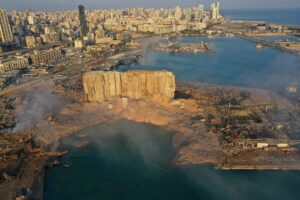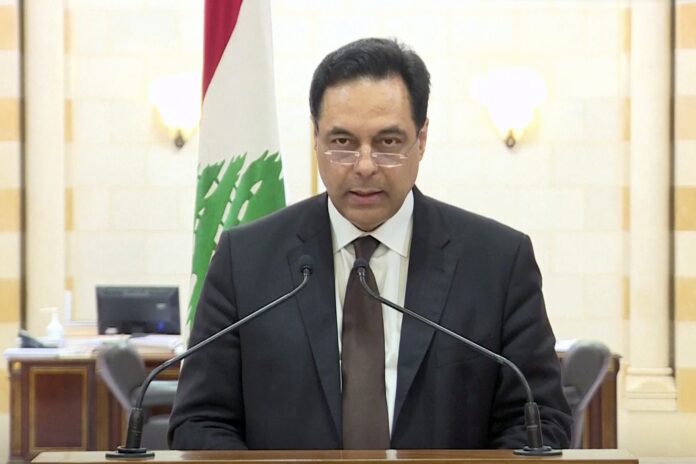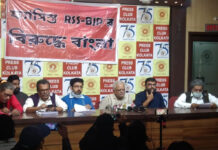The current Lebanon government resigned on August 10 in the aftermath of the Beirut blast and the mass protests that followed.
Prime Minister Hassan Diab announced in a televised address, that the blast was a “crime” that was a result of corruption that is “bigger than the state”. He announced that he was taking a step back in order to stand with the people and “fight the battle for change alongside them”.
Previously, Lebanon’s Information Minister, Manal Abdel Samad, Environment Minister, Damianos Kattar, Justice Minister, Marie Claude Najm, Finance Minister Ghazi Wazni, and 9 Members of Parliament had resigned from the government. President Michel Aoun accepted the Prime Minister’s resignation and asked him to continue in a caretaker capacity until the new government is formed.

On August 4, Around 2,750 tonnes of ammonium nitrate had exploded after a fire in the port area of Beirut. The death toll currently is 200, and around 6000 others have been reported to be injured.
Besides the massive loss to life, the blast had also destroyed at least 3 Beirut hospitals and damaged 2 hospitals, leading to additional stress on an already overwhelmed healthcare system. The blast had also destroyed wheat stored in the port’s granaries leading to fears of an impending food crisis in a country already facing shortages, especially as Lebanon imports 90% of its wheat through the port which has been destroyed, which was then likely holding 85% of the country’s cereals.
 The blast and the impending crisis added to the rising discontent in the country, which had led to mass protests in October last year, and the resignation of the previous Saad Hariri government. The 2019 protests that had begun to resist a series of new austerity measures, soon encompassed other long-standing issues, such as corruption, sectarianism, unemployment, lack of state accountability, and need for basic services.
The blast and the impending crisis added to the rising discontent in the country, which had led to mass protests in October last year, and the resignation of the previous Saad Hariri government. The 2019 protests that had begun to resist a series of new austerity measures, soon encompassed other long-standing issues, such as corruption, sectarianism, unemployment, lack of state accountability, and need for basic services.
After the blast, many in Lebanon saw the negligence and corruption of the state as the root cause behind such a massive lapse in safety measures, and protesters stormed various government buildings on August 8. Later, protestors hurled rocks at security forces blocking a road near Lebanon’s parliament. The police and army reinforcements responded with rubber bullets and teargas, and nearly 700 protesters were wounded in the clashes. In a report based on interviews with doctors, medical documents, images, and videos, Al Jazeera established that the police had violated international standards on the use of the force against the protestors.




























[…] Lebanon government resigns amid Mass Protests after Beirut blasts […]